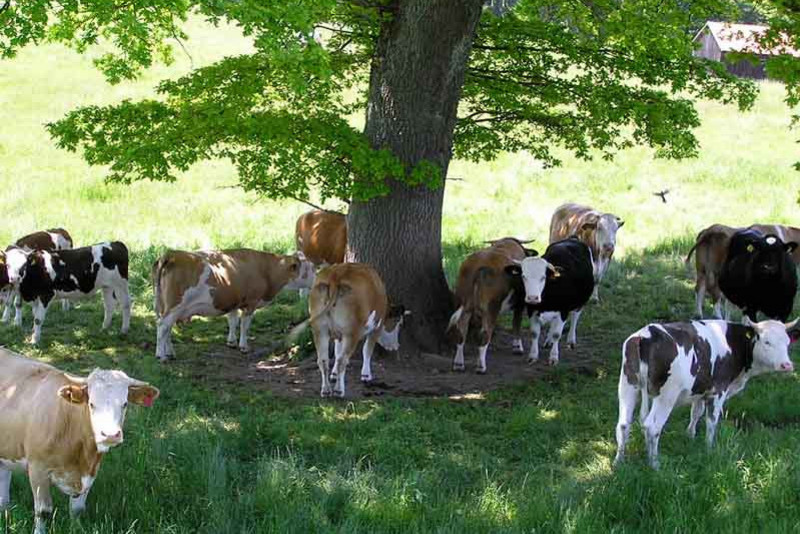Ecologically-bred Cattle: Lifetime Value is What Counts

Ecological cattle farming is also financially advantageous, according to research on lifetime bull value conducted by Interbull. Six breeding bulls from the “Lifetime Performance Bull Breeding” program – sponsored by the Software AG Foundation - have taken the top spots in an international ranking that calculates a bull’s lifelong breeding value on the basis of its female descendants.
Interbull’s list ranks 78,000 Holstein-Frisian bulls according to their lifetime breeding value. The top six ranked bulls were bred by a working group for lifelong-value cattle breeding according to the criteria of fitness and long-term performance (based on the years 1960 to 2000; breeding value estimation as of December 2015). “This clearly proves that lifetime performance, period of usability, and superior economic value are inheritable,” said Dr. Günter Postler of the working group for lifelong-value cattle breeding (Arbeitsgemeinschaft für Rinderzucht auf Lebensleistung, ARGE-LL). “Excellent genes are the basis of our future-oriented breeding program, and they should be preserved and expanded.” The Swedish-based Interbull is a sub-committee of the International Committee for Animal Recording. It collects and reviews national breeding value estimation processes and thus makes it possible to compare breeding values internationally.
Artificial insemination is a global business, and its evaluation criteria are becoming increasingly one-dimensional, aiming only at producing high-performance animals. For ecologically-focused cattle businesses, in contrast, longevity and lifetime performance are of great importance. In conventional cattle breeding, these play a subordinate role. Genomic selection, in particular – in which breeding value is calculated on the basis of genetic markers – is transforming the existing landscape of cattle breeding. “Criteria for selecting a bull based on generations of breeding, for example factoring in the cow families or a functional physique, are becoming less and less important,” said Dr. Postler. It is to be feared that semen from breeding bulls from independent rural breeders is being ousted from cattle insemination stations, and may in the future disappear completely.
“The basis for independent, environmentally-oriented cattle breeding is in existential danger,” stresses Klaus Plischke, the responsible project manager at the Software AG Foundation. “That is why our foundation supports the important work of ARGE-LL as well as other research projects – for example, a practically-oriented project on cow families and natural service bulls that is being carried out by the Research Institute for Organic Animal Breeding and Land Use (Forschungsinstituts für ökologische Tierzucht und Landnutzung – FIT).” Conventional breeding is extremely one-sided, focusing only on the highest short-term milk production and fast, high fattening rates; this unacceptable in the holistic view of an organic, ecological approach to farming, including with regard to animal welfare.
Article with further background information (in German)
Link to the European Association for Natural Cattle Breeding (EUNA)
